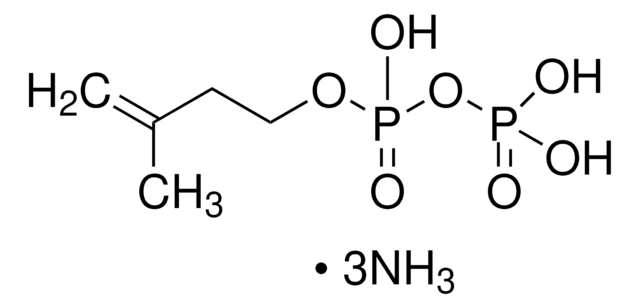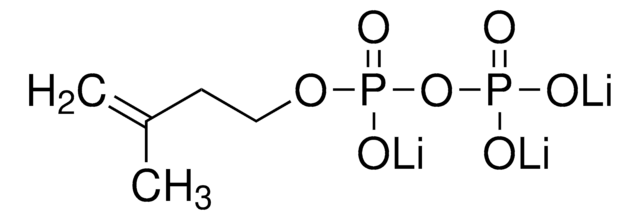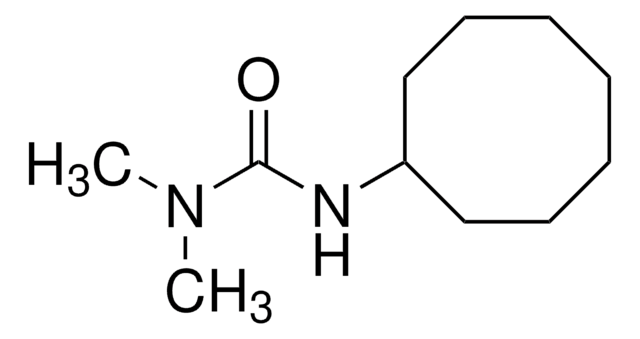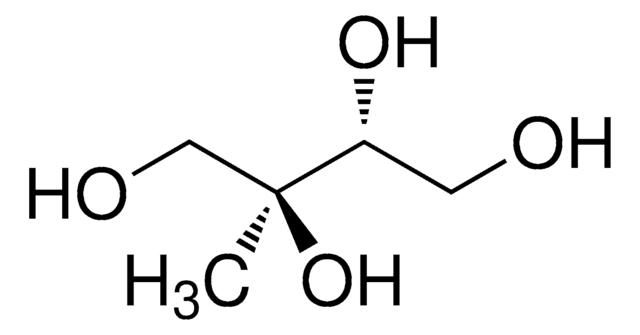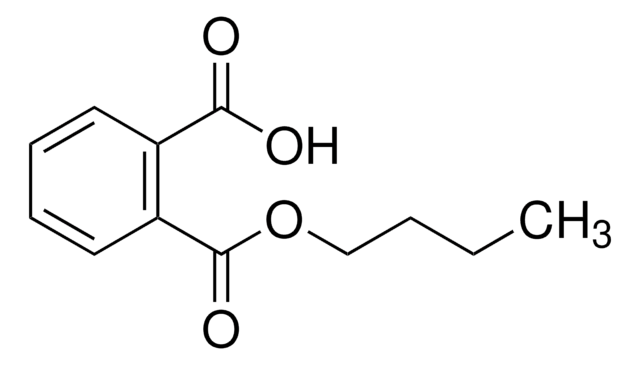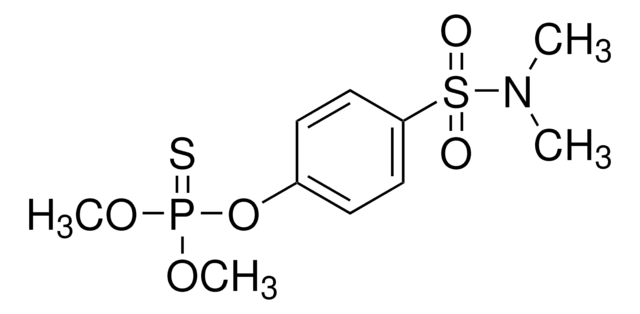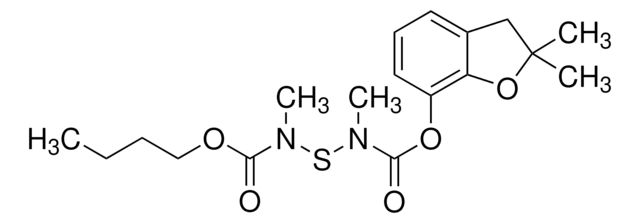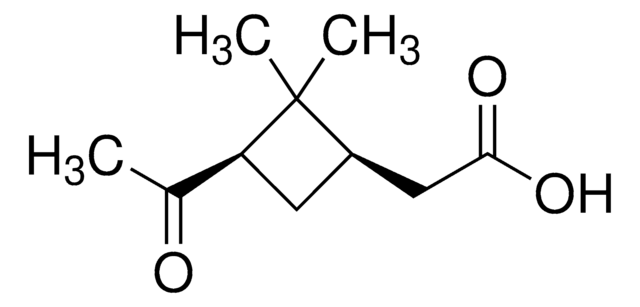52131
2-C-Methyl-D-erythritol 4-phosphate lithium salt
≥98% (TLC)
Sinonimo/i:
MEP
Autenticatiper visualizzare i prezzi riservati alla tua organizzazione & contrattuali
About This Item
Formula empirica (notazione di Hill):
C5H11O7P · xLi+
Numero CAS:
Peso molecolare:
214.11 (free acid basis)
Codice UNSPSC:
12352106
ID PubChem:
NACRES:
NA.25
Prodotti consigliati
Livello qualitativo
Saggio
≥98% (TLC)
Temperatura di conservazione
−20°C
Stringa SMILE
O=P(O)(O)OC[C@H](O)[C@@](O)(C)CO.C
InChI
1S/C5H13O7P/c1-5(8,3-6)4(7)2-12-13(9,10)11/h4,6-8H,2-3H2,1H3,(H2,9,10,11)/t4-,5+/m1/s1
XMWHRVNVKDKBRG-UHNVWZDZSA-N
Applicazioni
2-C-Methyl-D-erythritol 4-phosphate (MEP), the product of reductoisomerase IspC and first committed MEP pathway intermediate, is used to study the non-mevalonate MEP pathway for the biosynthesis of isoprenoids. MEP is used as a precursor for the synthesis of 4-diphosphocytidyl-2-C-methyl D-erythritol (CDP-ME), a key intermediate of the non-mevalonate pathway.
Azioni biochim/fisiol
Metabolite intermediate specific to the non-mevalonate MEP pathway, generally found in prokaryotes, as precursor to isoprenoids as well as non-isoprenoids like vitamins. As this pathway is not present in humans, it is of interest for the development of bacterium-specific drugs in the search for treatments of infectious diseases.
Confezionamento
Bottomless glass bottle. Contents are inside inserted fused cone.
Codice della classe di stoccaggio
11 - Combustible Solids
Classe di pericolosità dell'acqua (WGK)
WGK 3
Punto d’infiammabilità (°F)
Not applicable
Punto d’infiammabilità (°C)
Not applicable
Scegli una delle versioni più recenti:
Possiedi già questo prodotto?
I documenti relativi ai prodotti acquistati recentemente sono disponibili nell’Archivio dei documenti.
I clienti hanno visto anche
Sina I Odejinmi et al.
Tetrahedron, 68(43), 8937-8941 (2012-10-11)
2-C-methyl-D-erythritol-4-phosphate (MEP) is a key chemical intermediate of the non-mevalonate pathway for isoprenoid biosynthesis employed by many pathogenic microbes. MEP is also the precursor for the synthesis of 4-diphosphocytidyl-2-C-methyl D-erythritol (CDP-ME), another key intermediate of the non-mevalonate pathway. As this
Hyungjin Eoh et al.
Tuberculosis (Edinburgh, Scotland), 89(1), 1-11 (2008-09-17)
Tuberculosis (TB) is still a major public health problem, compounded by the human immunodeficiency virus (HIV)-TB co-infection and recent emergence of multidrug-resistant (MDR) and extensively drug resistant (XDR)-TB. Novel anti-TB drugs are urgently required. In this context, the 2C-methyl-d-erythritol 4-phosphate
Andréa Hemmerlin et al.
Progress in lipid research, 51(2), 95-148 (2011-12-27)
When compared to other organisms, plants are atypical with respect to isoprenoid biosynthesis: they utilize two distinct and separately compartmentalized pathways to build up isoprene units. The co-existence of these pathways in the cytosol and in plastids might permit the
J Kipchirchir Bitok et al.
ACS chemical biology, 7(10), 1702-1710 (2012-07-31)
There is significant progress toward understanding catalysis throughout the essential MEP pathway to isoprenoids in human pathogens; however, little is known about pathway regulation. The present study begins by testing the hypothesis that isoprenoid biosynthesis is regulated via feedback inhibition
Sinéad Heuston et al.
Microbiology (Reading, England), 158(Pt 6), 1389-1401 (2012-04-03)
Isoprenoid biosynthesis is essential for cell survival. Over 35 000 isoprenoid molecules have been identified to date in the three domains of life (bacteria, archaea and eukaryotes), and these molecules are involved in a wide variety of vital biological functions. Isoprenoids
Il team dei nostri ricercatori vanta grande esperienza in tutte le aree della ricerca quali Life Science, scienza dei materiali, sintesi chimica, cromatografia, discipline analitiche, ecc..
Contatta l'Assistenza Tecnica.
